Collecting Rainwater
In January 2022, i moved to a new flat and built a vegetable garden in the backyard, because i like growing veggies.

And because i also like permaculture, i wanted to water the garden with collected rainwater, which meant building a rainwater storage and distribution system. I thought rainwater is better for the plants than chlorinated city water, the rainwater store would double as emergency drinking water (to boil or chlorinate before drinking), building things is fun, and rainwater is free!
Correction: rainwater is free after you've paid off the cost of your rainwater system. More on that later.
So i bought a second-hand, food-safe, 1000-liter intermediate bulk container (180$), hid it behind the garage so the landlord won't complain, and set it on concrete blocks to better access its outlet.
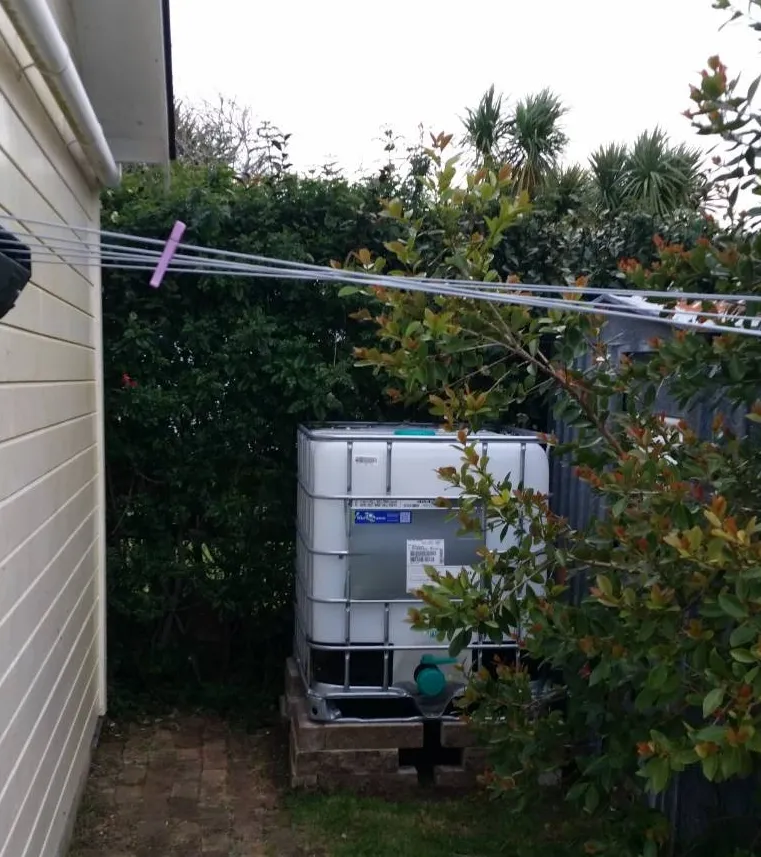
I also covered the tank with a black cloth to block sunlight and prevent algae from growing in the water.
Then i plumbed a custom diverter into the garage rainwater pipe (~60$, including the gutter brush that keeps out big debris). This took much planning and consultation with local rainwater expert Laurie Dee, because the pipe is roughly horizontal and therefore not compatible with standard store-bought rainwater diverters and because the pipe measures 82 mm in diameter, a hard-to-find legacy size in New Zealand, instead of 80 mm, the standard size.
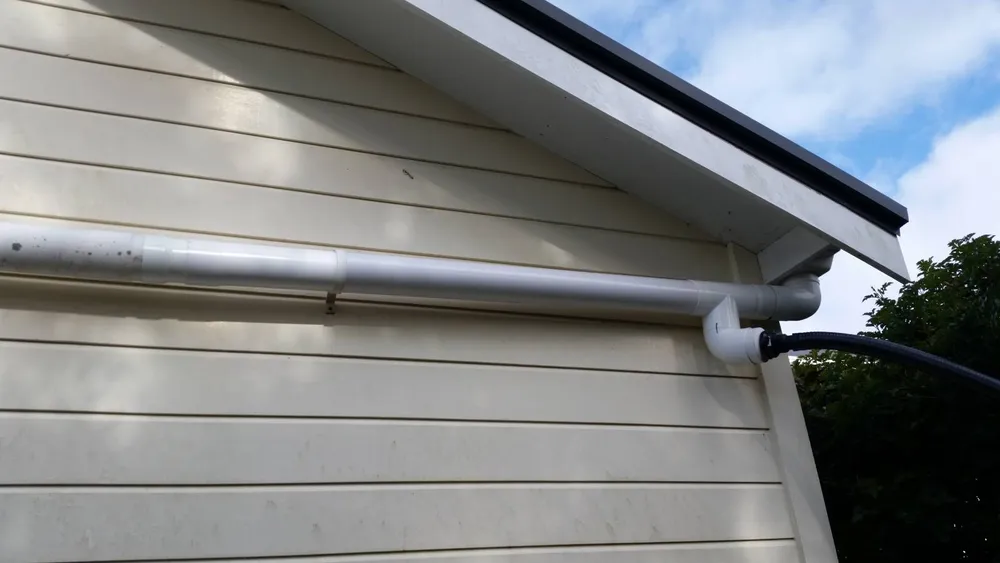
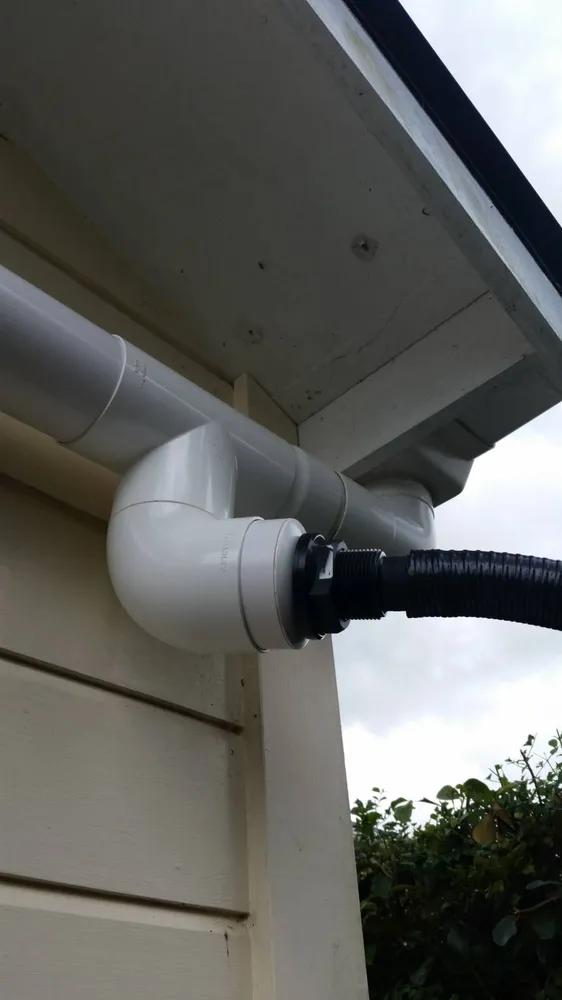
Next, i connected the diverter to the tank with 32 mm UV-resistant hose and installed a tap into the tank's outlet cap (~60$). The tank doesn't need an overflow pipe, because excess water backs up to the diverter, then flows down the garage pipe to the drain.
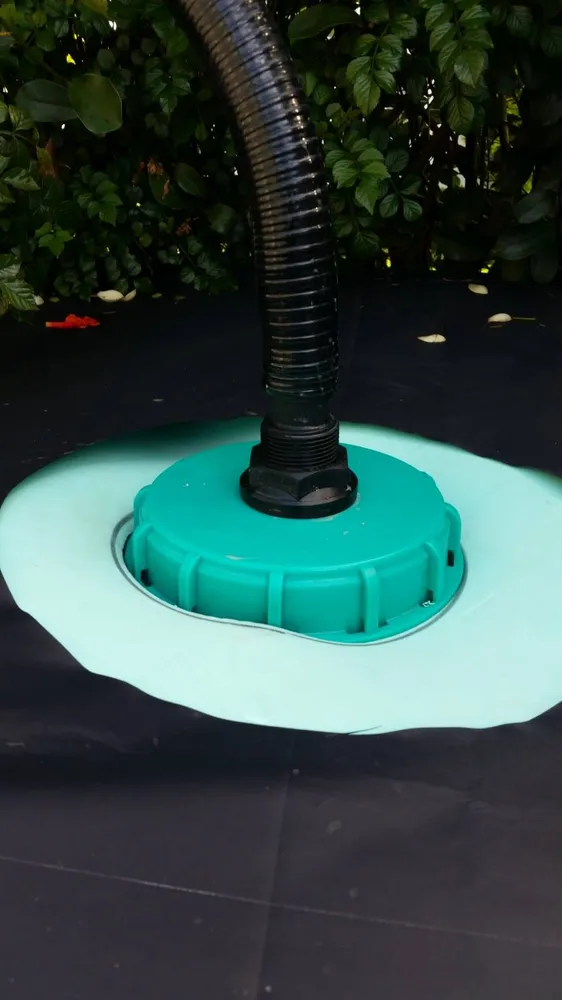
Then i connected a garden hose to the tank's outlet, because watering the garden from buckets is tedious.
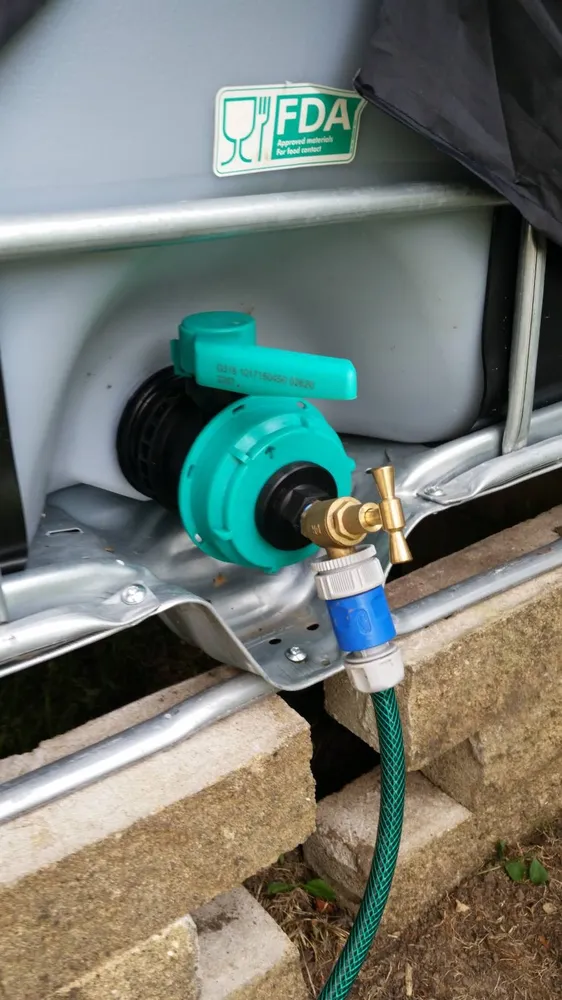
But to power a hose sprayer or sprinkler one needs about 4 bar of pressure, which means raising the tank ~41 m (!) for gravity flow or connecting it to a pump. A pump it is.
I bought a Shurflo 8000 series 12V DC 4.1-bar pressure pump and accessories (450$), such as as power supply, because Shurflo pumps are quiet and get good reviews. I opted for a DC pump instead of an AC one —probably could have saved 150$ with AC— because i wanted the option of easily connecting it to a solar panel if i get into that technology.
I named the pump Pumpernickel and wired it myself, because that's how Shurflo rolls.
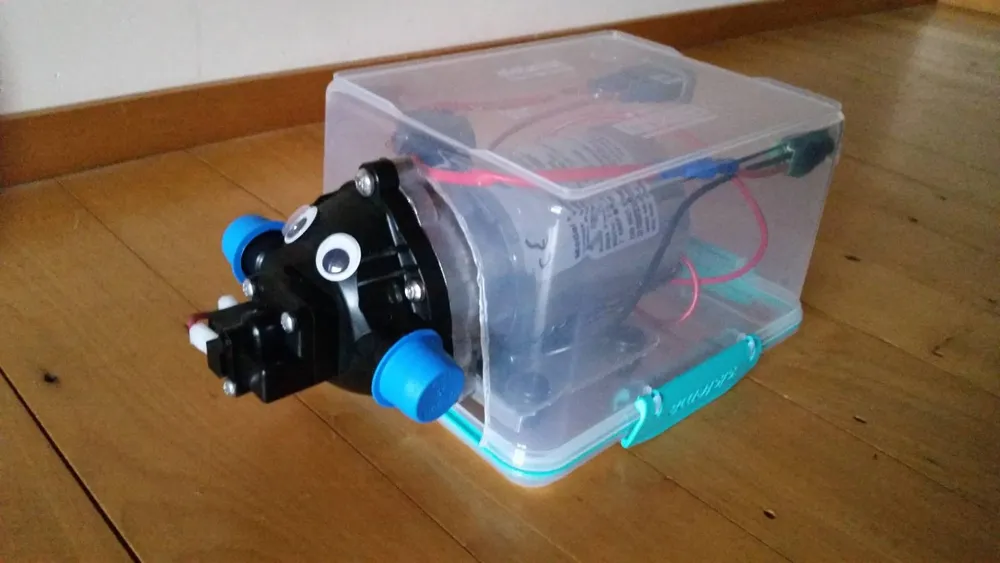
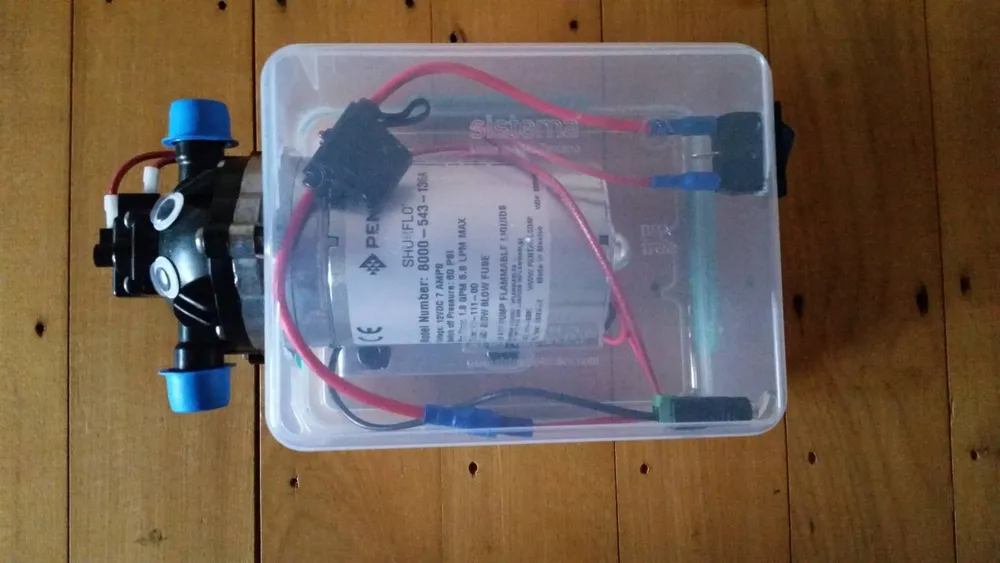
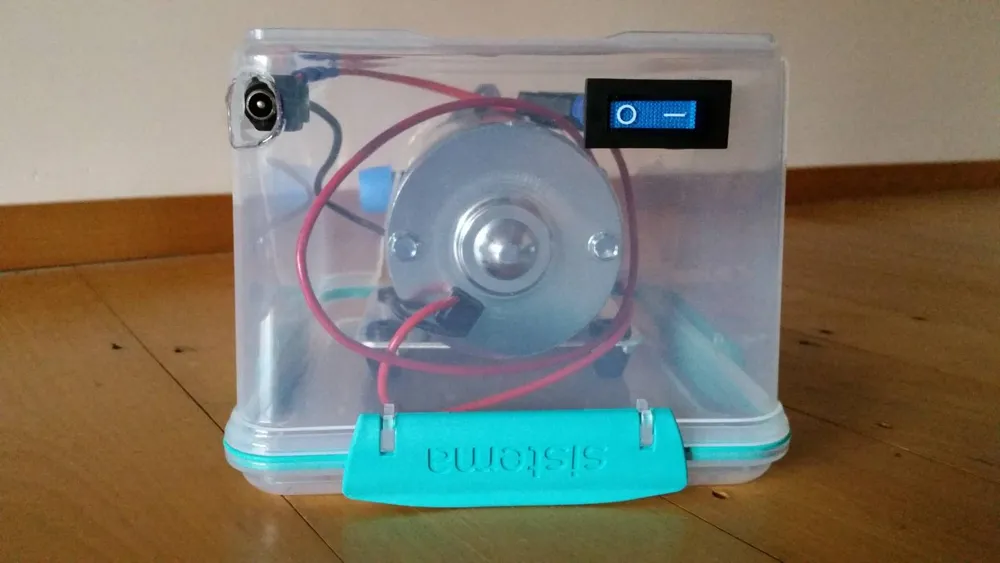
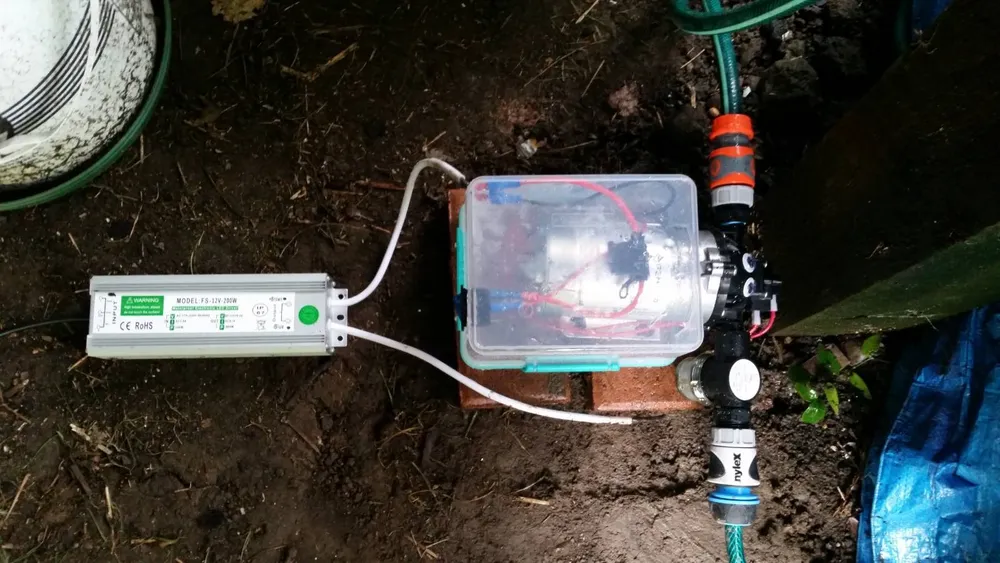
Downline of the pump, i installed a tap (~40$).
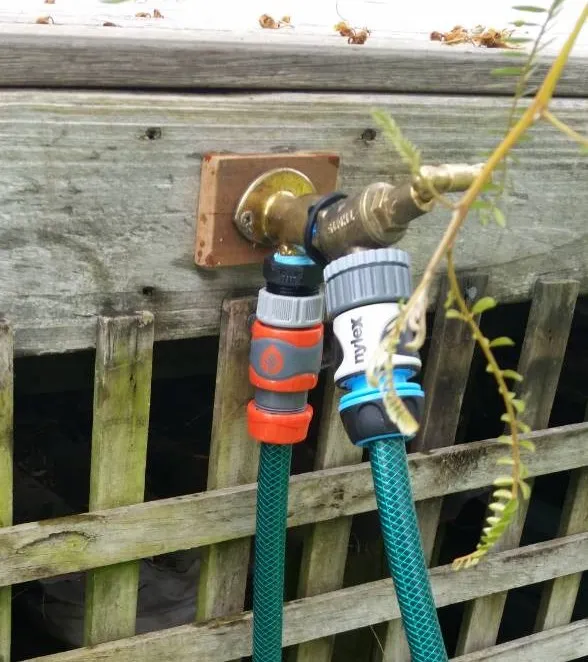
Pumpernickel comes with a conveniet pressure switch that makes him turn on/off automatically when i turn the tap on/off.
Finally, i bought one more length of hose to connect the tap to the garden sprinkler (12$).
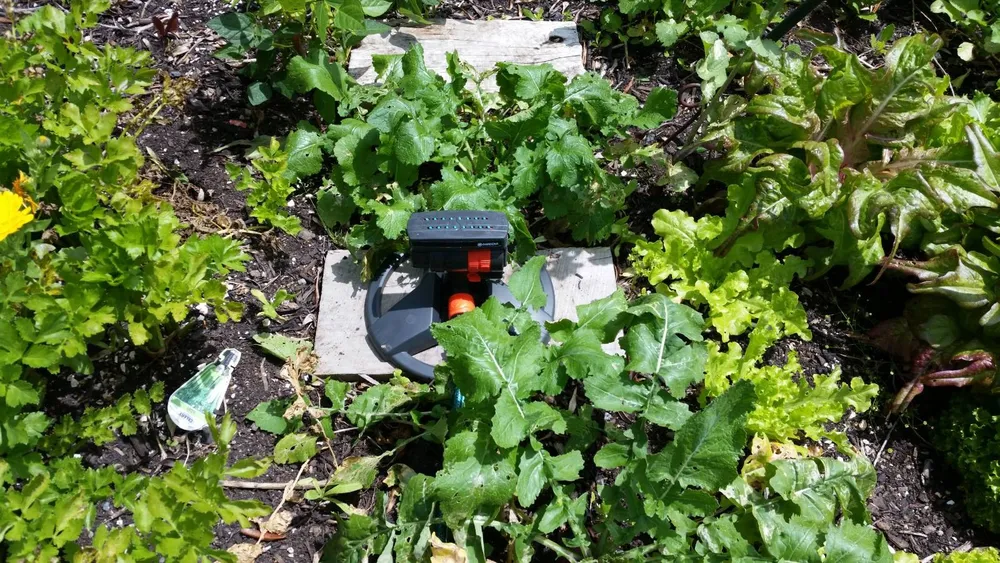
Rain to roof to tank to pump to tap to sprinkler.
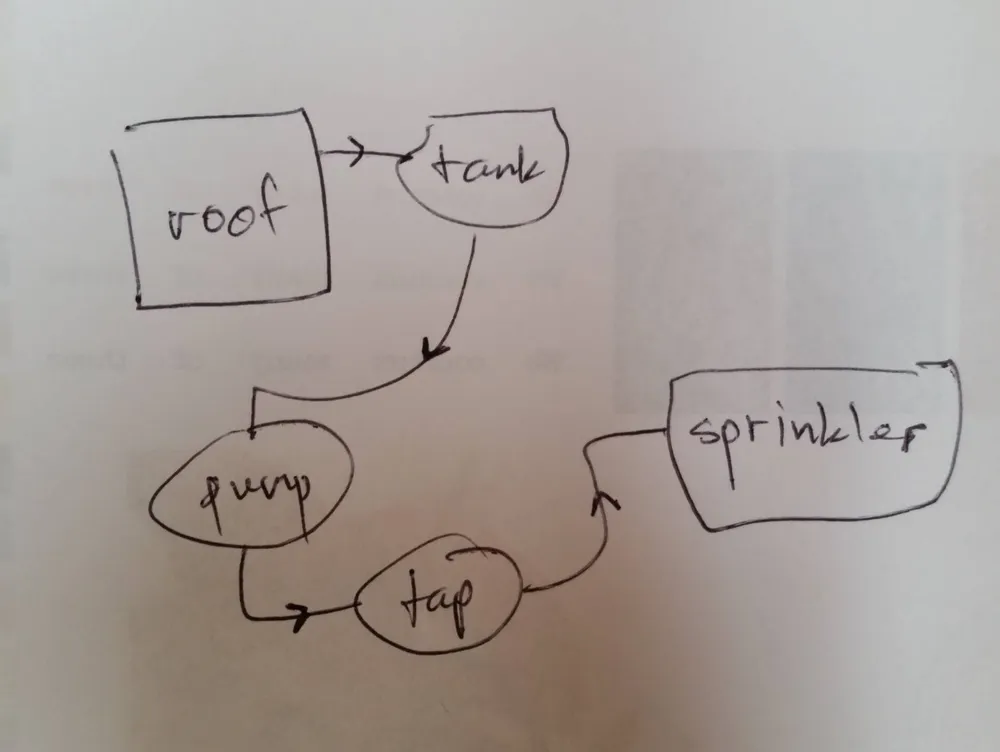
Payback
The Internet says most vegetable gardens need 25 mm/wk of water, which is about 108.3 mm/mo. Wikipedia says Auckland's average monthly rainfall dips below that threshold significantly for the five months of January (with a shortfall of 35 mm), February (42.2 mm shortfall), March (21 mm shortfall), November (22.5 mm shortfall), and December (15.5 mm shortfall). So during those months i can't rely on rain to water the garden directly and must instead water the garden myself (with collected rainwater), roughly 136.2 mm. My garden measures 13.5 sqm, so i need 13.5 sqm · 136.2 mm ~ 1,840 L of water for that. Let's round that up to 2 kL.
If i use Auckland city water, that will cost me 4.32 $/kL · 2 kL ~ 8.6$ at July 2022 rates. If i use rainwater, then it's free, after i pay off the ~810$ cost of my rainwater system. At the rainfall and city water rates quoted above, that will take 810$ / 8.6 $/yr ~ 94 years.
But wait, city water prices could rise as limits to growth bite harder! True. A payback period of 50 years then?
Learnings
OK, clearly i'm not doing this to save money. Viewed differently, i just paid 810$ to work on a fun project, learn about rainwater collection hands on, and increase my home's resilience. As a bonus, watering my garden is now free. Er, unless we go more than three weeks without rain, at which point my tank will empty and i'll have to use city water again. Hmm, maybe i'll buy a second tank next summer.